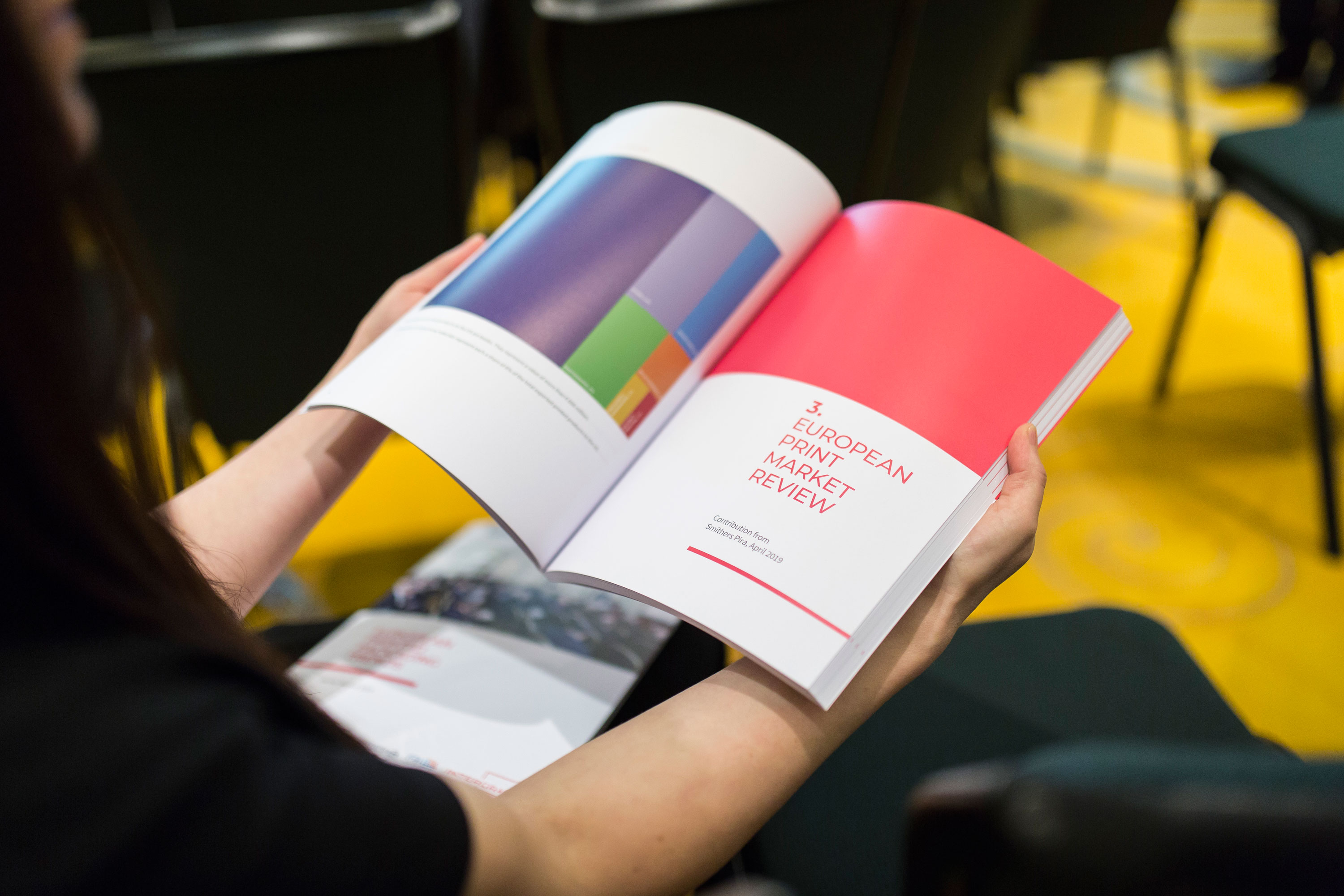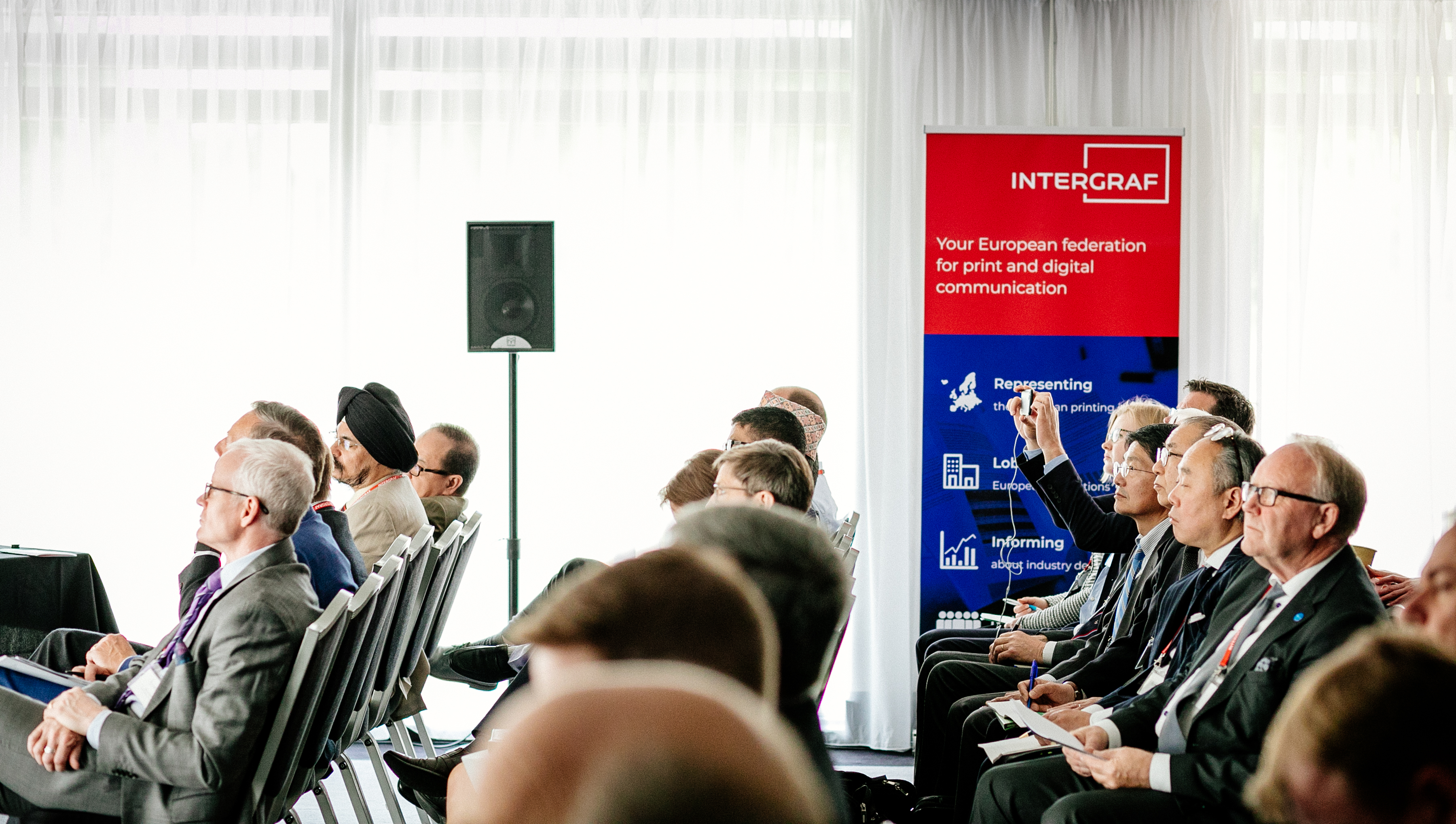European Social Dialogue: COVID-19 crisis
1 March 2020

The European graphical industry comprises 113,000 companies, employing some 620,000 people in the different Member States and generating an annual turnover of 80 billion EUR. The industry is mainly composed of small companies, with 90% of companies employing fewer than 10 staff.
The COVID-19 health crisis will test the resistance of printing companies. The ability to attract and retain talent has been identified as a key element for the future of the sector and this challenge is magnified by the impact of the crisis. Likewise, the social partners emphasise the importance of preserving the industrial fabric and jobs as the only guarantee for internal consumption to recover once the exceptional isolation measures are over and to prevent the health crisis from turning into a social and financial crisis.
Sectors such as printing and publishing, composed mostly of SMEs, will be hard hit in a continued scenario of falling demand. These sectors, which play a fundamental role in the dissemination of culture and the promotion of critical thinking, must be given special consideration. UNI Europa Graphical and Intergraf call for a specific plan to help the sector and calls on unions and national employers' organisations to join this demand with their respective governments.
Health and Safety
The health and safety of all employees in the graphical sector must be the absolute first priority of our approach to dealing with the COVID-19 crisis in the sector. Both UNI Europa Graphical and Intergraf urge their respective affiliates to continually emphasise this and to prioritise it.
Today we have no better strategy to avoid the collapse of our health systems than to prevent the spread. Social partners must be aware of the role that companies and workers play in contributing to the fight against COVID-19 and the responsibility we have to society as a whole.
Solutions such as teleworking, reorganisations of shifts, precautionary measures to mitigate risk and the reinforcement of sanitation of facilities – among other things – shall be applied to ensure workers health and avoid the spread of the virus.
Printing to be defined as ‘essential service’
We call on authorities at national level to recognise printing an ‘essential service’. If the printing industry is not permitted to function as usual and denied financial assistance, access to raw materials, or other support, authorities risk that indispensable products are not produced. Indeed, the production of food and pharmaceutical packaging needs to continue to secure access of these products to citizens in supermarkets and pharmacies. Avoiding disruptions to these key value chains must be prioritised.
Moreover, concerned citizens rely on newspapers to keep themselves informed about the virus. According to Eurostat, 10% of individuals in Europe do not have access to the internet in their households (rising as high as 25% in certain countries), rendering them unable to access news online. This is to a large extent older people, one of the most important cohorts of people to remain informed in this crisis, given that they are in a high-risk category. And according to a Eurobarometer survey on fake news and online disinformation, traditional print media, TV, and radio continue to be the most trustworthy sources of news. Fake news about COVID-19 is dangerous, threatening real people’s lives. At a time of widespread uncertainty and concern, the printing of newspapers must continue.
Strengthen social dialogue at all levels
UNI Europa Graphical and Intergraf further urge their affiliates to strengthen Social Dialogue and collective bargaining at national, company and plant level in order to forge the maximum possible consensus and commitment to combatting the spread of the virus. A strong and robust Social Dialogue at all levels will without doubt help to avoid a loss of talent, ensure the survival of companies and protect workers' livelihoods and wages by applying national best practices and approaches such as the national short-term working schemes.
Printing supply chains to be safeguarded
Access to paper, board, foils and plastics is key for European printing companies to continue supplying consumers with essential goods, such as food, medicines and newspapers.
Printing companies can also only operate with the use of solvents, in particular synthetic ethanol/ethyl alcohol and isopropanol. Both solvents are also used to produce disinfectants, for which demand has dramatically increased with COVID-19. Printing companies are experiencing a shortage of, and in certain countries are denied access to, these solvents. While it is important that the supply of synthetic ethanol/ethyl alcohol and isopropanol should first be secured for sanitary purposes, its supply for the continuous production of food and medicines packaging should also be sustained.
Printing companies to be secured liquidity and credit
As over 90% of printing companies in Europe are SMEs, it is crucial for them to be granted sufficient flexibility in order to face any liquidity problems. It is crucial that at European and national level, flexibility is granted regarding fiscal rules and state aid policies. In particular, providing guarantees for working capital and allowing the postponement of taxes and social contributions will help to safeguarding companies’ liquidities. State guarantees for credit lines, in particular for SMEs, should also be provided. Authorities should secure that banks and financial intermediaries maintain the flow of credit.
Printing companies to be eligible for funding possibilities
Like many other sectors, the printing industry will face significant financial pressures during the coming weeks and months. In a sector that is already under a lot of pressure, support will be required to secure that printing companies survive the current crisis and are able to contribute to the economic recovery when restrictions are lifted. Access to funding opportunities at national and European level for printing businesses and their workers will therefore be vital.
Download the position paper here
{K2Splitter}






